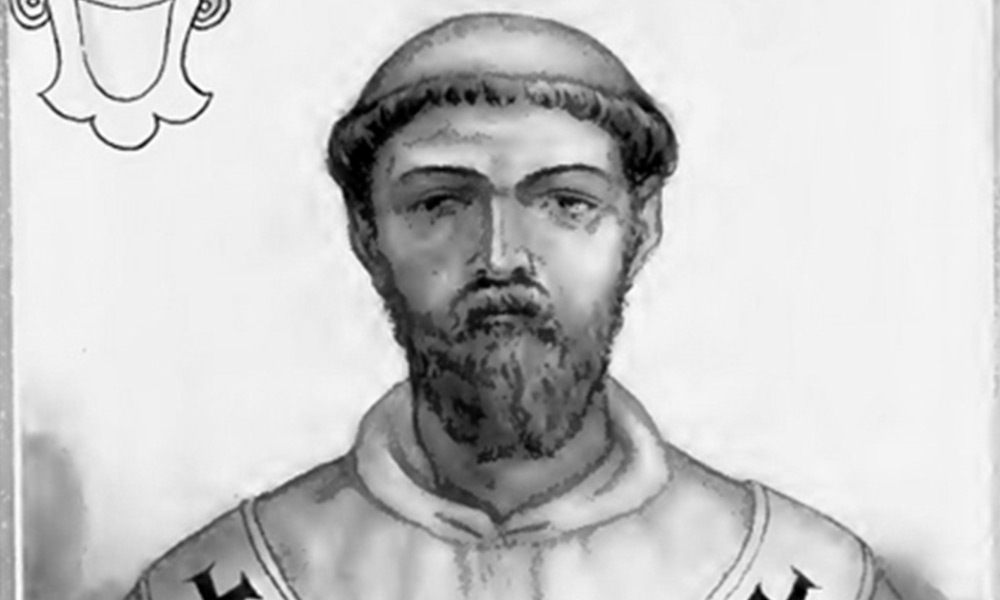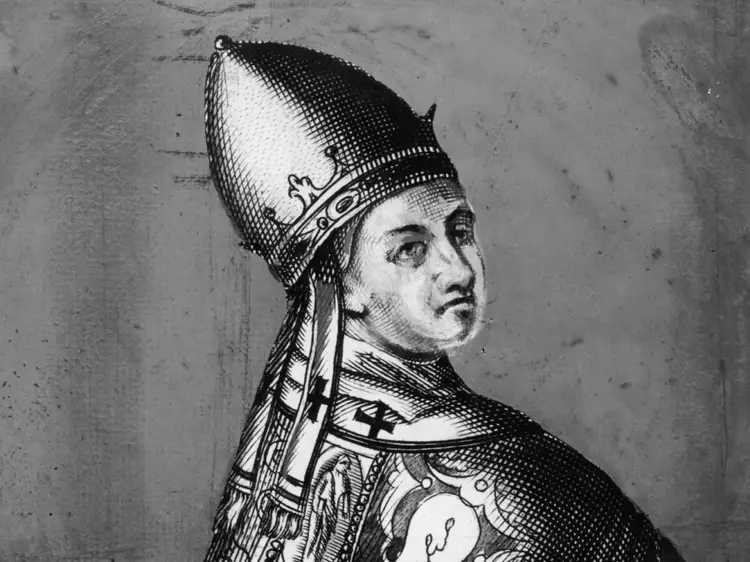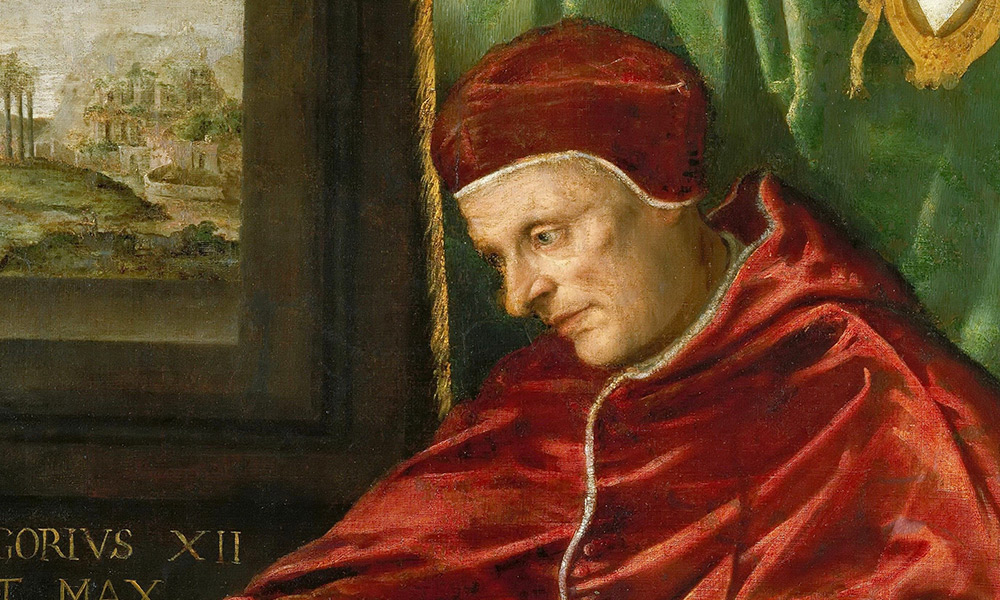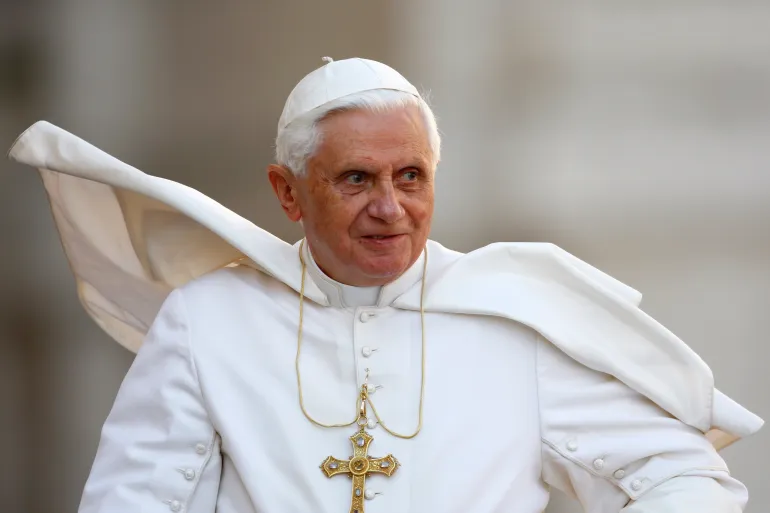It’s very rare that you will see a Pope resign from the Pontificate. They tend to go on until death. In the entire history of the Papacy, only 6 popes have decided to call it a day and resign. Below we explore these six resignations to give you some background on when and why they occured.
Who was the first Pope to Resign?
The first (alleged) resignation from the Pontificate was Pope Pontian. He was one of the earliest cases of a pope resigning. Pope Pontian, who served from 230 to 235 AD, found himself in the untenable position of leading the Church while in exile. He was exiled by the Romans, and his resignation is particularly noteworthy given the context of the third century, a period marked by intense persecution of Christians in the Roman Empire.
Pontian was sent into exile to the mines of Sardinia, a common punishment for criminals and those deemed enemies of the state, which included Christians during periods of persecution. The harsh conditions of exile, combined with his inability to effectively lead the Christian community from such a distance and under such duress, likely contributed to his decision to resign.
The historical record indicates that Pontian abdicated in September 235 AD. Pope Anterus was elected as his successor, becoming the new pope in November of the same year.
First Confirmed Pope Resignation
The first pope who with 100% certainty did resign was Benedict V, who became Pope following the death of Pope John XII. Benedict V’s tenure as pope lasted just 33 days and is the 10th shortest reigning pope ever.

He was deposed by the Holy Roman Emperor, Otto I, who contested the result of the election, and who had supported another candidate, Leo VIII. Leo was then placed as Antipope.
Benedict V’s “resignation” was not voluntary; rather, it was the result of political and military pressure from the Holy Roman Emperor.
#2 – Pope Benedict IX

Benedict IX was the most unique popes ever in the history of the papacy. This was due to him being pope on three separate occasions between 1032 and 1048. He also resigned three times.
His first resignation occurred in 1045, amidst growing dissatisfaction with his scandalous lifestyle. The pressure applied to him from opposition factions within the Church, made Benedict IX abdicate the papacy in exchange for a substantial sum of money.
He sold the papacy to his godfather, the archpriest John Gratian, who then became Pope Gregory VI (which in turn caused another resignation – see below).
Benedict’s motivation for this resignation was primarily personal, as he sought to marry and possibly because of the increasing challenges he faced in maintaining his position as pope.
After his resignation, Benedict IX attempted to reclaim the papacy twice, resulting in his unique history of being pope three times. His actions and the turmoil of his papacies underscored the need for reform within the Church, eventually contributing to the momentum for the Gregorian Reforms later in the 11th century.
#3 – Pope Gregory VI
Pope Gregory VI’s resignation in 1046 is a pivotal moment in the history of the papacy, marked by controversy and the quest for reform within the Church. Gregory VI ascended to the papal throne in 1045, amidst a period fraught with clerical corruption and moral decline. His elevation to the papacy itself was mired in controversy due to the circumstances surrounding his acquisition of the papal office.
The key issue leading to Gregory VI’s resignation was the charge of simony, the buying or selling of ecclesiastical privileges or offices. Gregory VI was accused of having purchased the papacy from his predecessor, Pope Benedict IX, who had abdicated the throne in exchange for financial compensation. This transaction, although intended by Gregory to rid the Church of a scandalous pope, was seen as an act of simony and cast a shadow over his legitimacy as pope.
It all came to a head during the Council of Sutri in December 1046, convened by Emperor Henry III of the Holy Roman Empire. The council was part of Henry’s broader efforts to reform the Church and address the issue of simony. During the council, Gregory VI was persuaded to resign, acknowledging that his acquisition of the papacy, even though well-intentioned, had been flawed.
Gregory VI’s resignation paved the way for Pope Clement II, marking the beginning of a series of reform-minded popes committed to addressing the moral and administrative challenges facing the Church.
#4 – Pope Celestine V
Pope Celestine V‘s resignation stands as a unique event in the history of the papacy, primarily due to its context and the nature of Celestine himself.
Elected in 1294, after a prolonged papal vacancy of over two years, Celestine V was an unexpected choice. Before his election, he was known as Pietro Angelerio, a hermit renowned for his devout spirituality and desire for a simple, ascetic life. His election was largely influenced by the belief that a deeply spiritual leader could bring reform and moral integrity to the Church.
However, Celestine V quickly found the demands of the papacy overwhelming. He struggled with the administrative responsibilities, the political intrigues of the time, and the general complexity of leading the Church. His lack of experience in ecclesiastical governance and discomfort with the political aspects of the papal role made his position untenable.
Approximately five months after his election, Celestine V issued a solemn decree declaring that the pope could voluntarily resign. Following this, he resigned from the papacy in December 1294, citing his desire for a return to a contemplative life and his recognition of his inadequacy for the demands of the papal office. His resignation was accepted, and he intended to return to his hermit lifestyle.
After his resignation, Celestine V’s successor, Pope Boniface VIII, confined him to the Castle of Fumone to prevent any potential schism or challenge to the legitimacy of the new papacy. Celestine V died in 1296, approximately two years after his resignation. His unique decision to resign, motivated by personal humility and recognition of his limitations, remains a significant moment in Church history, illustrating the human aspects behind the institutional role of the papacy. Celestine V was canonized in 1313, recognized for his piety and the spiritual qualities that originally led to his election as pope.
#5 – Pope Gregory XII

Pope Gregory XII, who reigned from 1406 to 1415, holds the distinction of being the last pope to resign before Pope Benedict XVI did so in 2013.
His resignation was a significant event in the history of the Catholic Church, primarily because it was motivated by the desire to end the Western Schism, a period of division in the Church that saw multiple claimants to the papacy simultaneously.
The Western Schism began in 1378 and resulted from political and theological disputes that led to the election of rival popes. By the time of Gregory XII’s papacy, there were two individuals claiming to be the true pope: Gregory XII in Rome and Benedict XIII in Avignon. This division caused significant strife and confusion within the Church and among the faithful.
Gregory XII’s resignation was part of a negotiated agreement to resolve the schism. The plan, known as the Council of Constance (1414-1418), was to persuade all claimants to the papacy to step down or be deposed, thereby allowing a new pope to be elected by a unified Church. Gregory XII consented to resign on the condition that his resignation would be formally accepted by the council, ensuring that his action would be recognized as legally and ecclesiastically valid. In doing so, he retained control over the process to ensure the legitimacy of the council and the subsequent election of his successor.
In July 1415, Gregory XII officially resigned, and the council deposed the remaining antipope, Benedict XIII, who refused to resign. This paved the way for the election of Pope Martin V in 1417, effectively ending the Western Schism and restoring unity to the Catholic Church.
#6 – Benedict XVI

On February 28, 2013, Pope Benedict XVI resigned as pope. He was the first pope to do so in almost 600 years, since Pope Gregory XII did it in 1415. In his announcement, made in Latin during a consistory for the canonization of martyrs, Benedict XVI cited his advanced age and deteriorating strength as the primary reasons for his decision to resign. He stated that he had come to the recognition that his strength, due to an advanced age, was no longer suited to an adequate exercise of the Petrine ministry.
Following his resignation, Benedict XVI assumed the title of Pope Emeritus and retired to a former monastery within the Vatican Gardens, dedicating himself to prayer and reflection away from the public eye. His resignation paved the way for the conclave that elected Pope Francis as his successor.
Pope Benedict died on 31 December 2022 aged 95.